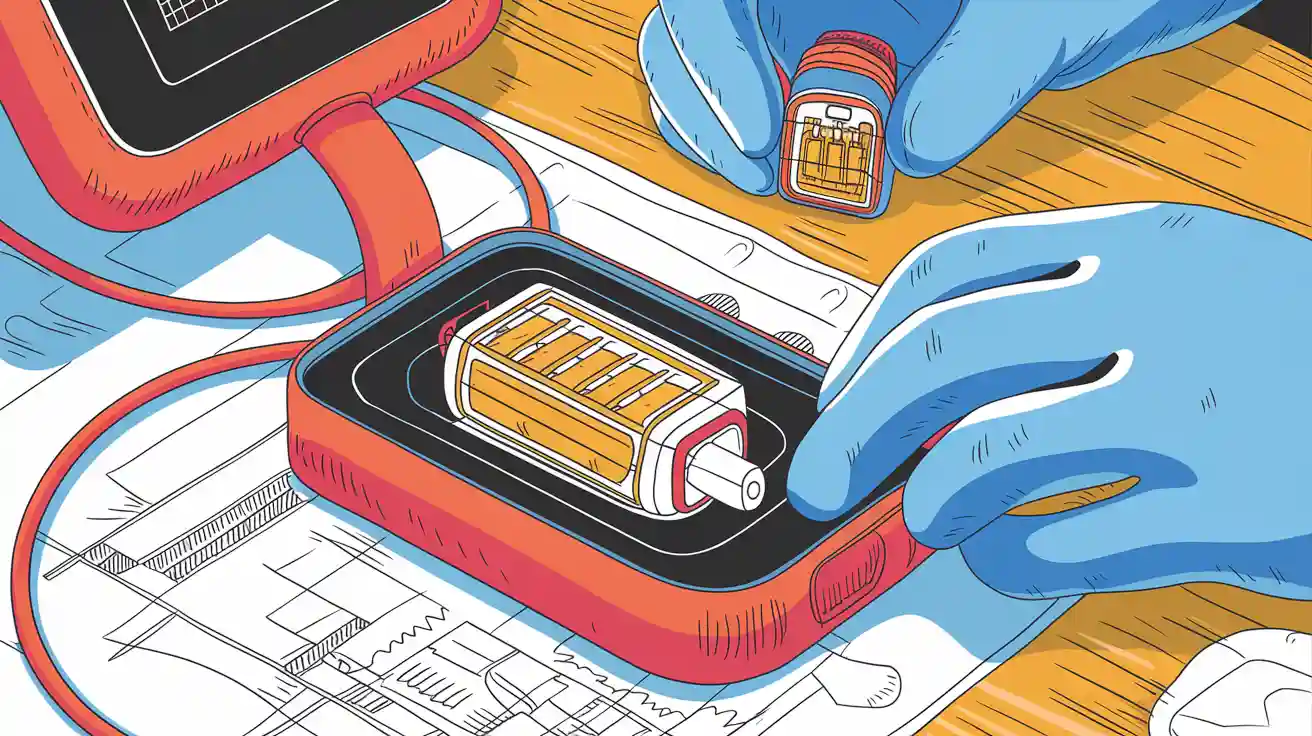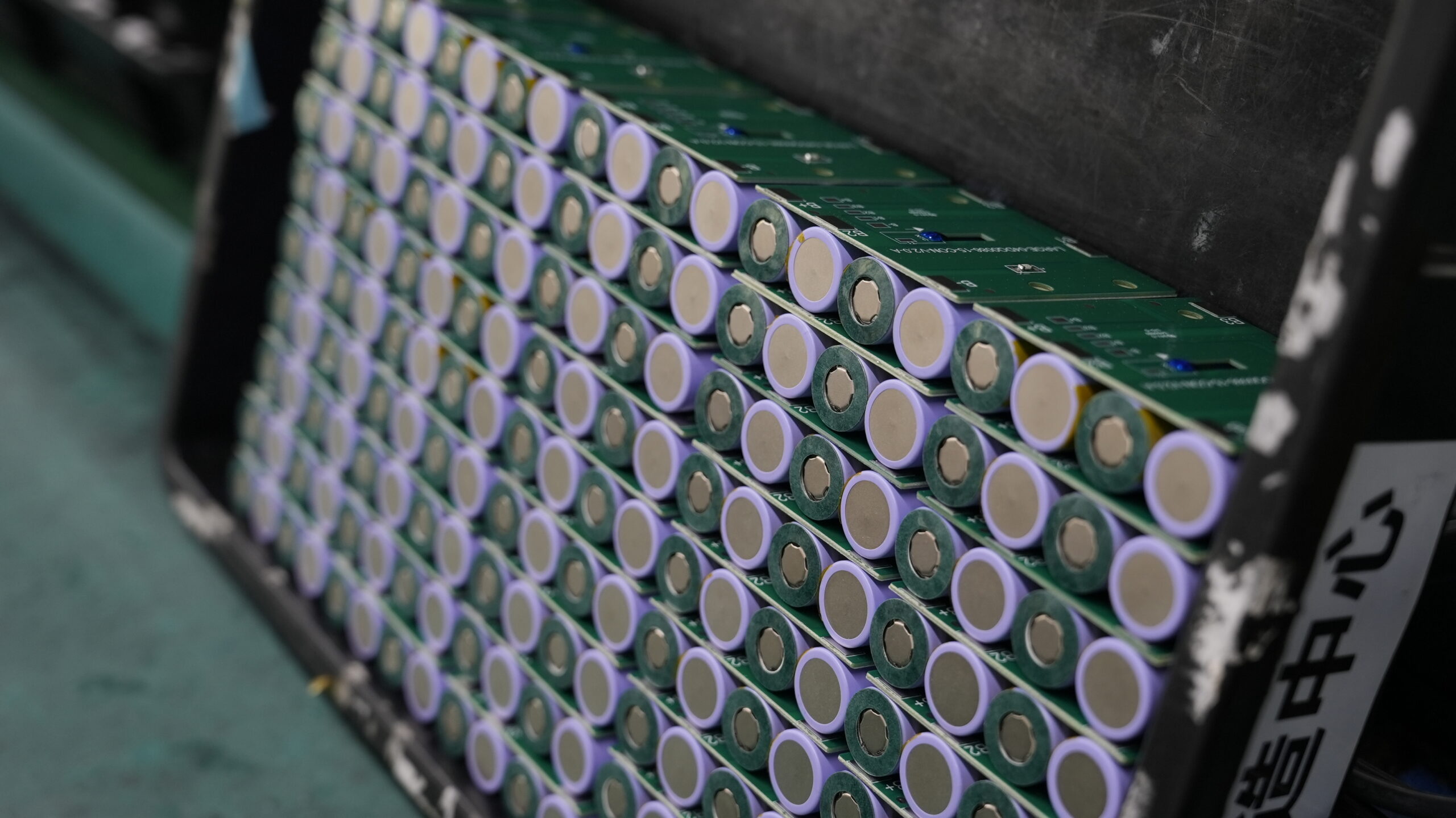
As a key player among medical device manufacturers, you face strict demands for safety, reliability, and compliance. Every battery powering your equipment must meet rigorous standards, including ANSI/AAMI ES 60601-1 and IEC 62133. These requirements protect patients and ensure your devices perform as expected. Off-the-shelf options often fall short, but custom battery pack solutions give you the power, efficiency, and assurance you need. By choosing battery solutions designed specifically for medical device manufacturers and their unique challenges, you achieve better performance and regulatory confidence.
Regulatory Requirement
Description
ANSI/AAMI ES 60601-1
General safety and performance requirements for medical devices using batteries.
IEC 60086-4
Safety requirements for primary lithium batteries.
IEC 62133
Safety requirements for secondary lithium cells and batteries.
UN 38.3
Testing requirements for safe transportation of lithium batteries.
FDA Consensus Standards
Compliance requirements for battery-powered medical devices before market entry.
Key Takeaways
Custom battery solutions enhance safety and reliability, meeting strict medical standards and reducing risks of overheating or failure.
Tailored battery packs optimize performance, offering longer operational life and improved energy density for medical devices.
Collaborating with trusted suppliers accelerates product development, ensuring compliance and faster market entry for medical devices.
Custom battery management systems monitor performance in real-time, preventing hazards and ensuring safe operation in critical environments.
Investing in custom solutions supports better patient outcomes and strengthens the reputation of medical devices in the healthcare sector.
Part 1: Off-the-Shelf Battery Limits

1.1 Standardization Issues
You face significant challenges when relying on off-the-shelf batteries for battery-powered medical devices. Standard batteries often fail to meet the unique requirements of medical device manufacturers. These batteries come in fixed sizes, voltages, and chemistries, such as lithium-ion (Li-ion) or lithium iron phosphate (LiFePO₄), which may not align with your device’s power needs or operational environment.
Standardization restricts your ability to optimize battery packs for weight, shape, and energy density. This limitation can result in wasted space, inefficient power delivery, and increased device bulk. Custom battery packs allow you to tailor every aspect, ensuring seamless integration and maximum efficiency.
Feature | Off-the-Shelf Batteries | Custom Battery Packs |
|---|---|---|
Size & Shape | Fixed | Tailored |
Chemistry Options | Limited | Broad (Li-ion, LiFePO₄, etc.) |
Integration | Generic | Device-specific |
Power Optimization | Basic | Advanced |
1.2 Safety and Compliance Risks
You must prioritize safety and compliance in every battery-powered medical device. Off-the-shelf batteries often introduce risks such as overheating, short-circuiting, and leakage. These issues can compromise patient safety and device reliability.
Preventing battery failures like overheating, leakage, or explosion is essential for patient safety.
Complying with FDA, ISO, and IEC regulations is mandatory for manufacturers.
Addressing risks from temperature fluctuations and physical shocks is critical.
Evaluating lithium-ion batteries helps prevent thermal runaway.
Verifying long-term battery performance avoids degradation.
A recent recall by ICU Medical highlights the dangers of using standard batteries. The batteries failed to hold charge, causing interruptions in critical fluid delivery and posing risks of serious injury or death.
Incident Type | Description |
|---|---|
Recall | ICU Medical recalled certain batteries used in infusion pumps due to safety concerns. |
Risks | Potential for serious injury or death due to battery failures affecting medication delivery. |
Findings | Batteries may fail to hold charge, leading to interruptions in critical fluid delivery. |
1.3 Performance Shortfalls
You expect consistent power and long operational life from your battery-powered medical devices. Off-the-shelf batteries often fall short in demanding environments. These batteries may degrade quickly, lose capacity, or fail under stress, especially in medical settings where reliability is non-negotiable.
Custom battery packs offer solutions that address these performance gaps. You gain longer working times, improved energy density, and enhanced durability. Manufacturers who invest in tailored solutions experience fewer device failures and greater confidence in their products.
Part 2: Custom Solutions for Medical Device Manufacturers

2.1 Tailored Safety and Reliability
You need battery solutions that meet the highest safety standards and deliver consistent reliability in every application. Custom battery packs for medical device manufacturers integrate advanced safety features and comply with global certifications. These safeguards protect your devices from overcharging, overheating, and short circuits, reducing the risk of failure in critical care environments.
Safety Feature | Description |
|---|---|
Proven Safety Standards | Compliance with global certifications like UN38.3, UL, and CE. |
Enhanced Safety Features | Safeguards against overcharging, overheating, and short circuits. |
Custom battery solutions offer several reliability advantages:
Advanced safety features protect against overheating and short circuits.
Longer operational life reduces the need for frequent replacements.
Faster charging capabilities minimize downtime in critical care settings.
Strict compliance with medical standards ensures reliability and safety.
You can trust these solutions to maintain performance in sensitive environments, such as surgical suites and intensive care units. Manufacturers who invest in custom battery packs see fewer device failures and greater patient safety.
2.2 Optimized Performance and Longevity
Custom battery solutions deliver performance improvements that standard options cannot match. You benefit from compact, lightweight designs that make your devices easier to handle and transport. High energy density provides longer usage times, which is essential for portable medical equipment.
Compact and Lightweight: Custom batteries enable smaller, unobtrusive devices.
High Energy Density: Extended usage times support long-term patient care.
Fast Charging and Low Self-Discharge: Quick charging reduces downtime, while low self-discharge retains power during storage.
Safety and Reliability: Overcharge protection and temperature control enhance patient safety.
Custom battery solutions are tailored to your device’s power requirements. This approach improves performance and extends operational lifespan. You receive batteries that undergo comprehensive testing and quality management, ensuring compliance with regulatory standards. These benefits support your commitment to reliability and patient care.
Note: Custom battery solutions have enabled manufacturers to achieve a significant weight reduction of 20% in next-generation portable medical devices. This improvement helps you design lighter, more ergonomic equipment for healthcare professionals.
If you want to learn more about responsible sourcing and sustainability in battery manufacturing, visit Our Approach to Sustainability and Conflict Minerals Statement.
2.3 Weight and Efficiency Benefits
You face constant pressure to improve device usability and efficiency. Custom battery solutions address these demands by reducing weight and optimizing power management. Thoughtful battery planning ensures your wearable medical devices meet technical requirements and enhance user satisfaction.
Key Point | Explanation |
|---|---|
Battery Planning | Thoughtful battery planning is crucial for wearable medical devices to meet technical requirements and enhance user satisfaction. |
Power Management | Proper power management is essential to ensure performance in various use cases. |
Wearable devices often struggle with limited battery capacity. Customers expect devices to last at least a day on a single charge, which drives the need for improved battery efficiency.
Challenge | Description |
|---|---|
Limited Battery Capacity | Wearable devices often have limited battery life, necessitating innovative solutions to optimize power usage. |
User Expectations | Customers expect devices to last at least a day on a single charge, which drives the need for improved battery efficiency. |
Smart battery management systems, such as SmartAPM, use deep reinforcement learning to optimize power consumption dynamically. This technology extends battery life and improves user experience.
Feature | Benefit |
|---|---|
SmartAPM System | Utilizes deep reinforcement learning to optimize power consumption dynamically, extending battery life and improving user experience. |
Reduced Charging Frequency | By optimizing power usage, the system decreases the need for frequent charging, enhancing usability. |
Custom battery solutions help you achieve longer working times, reduced charging frequency, and improved device efficiency. These benefits support your goal of delivering reliable, user-friendly medical devices.
Part 3: Technical Design Considerations
3.1 Cell Chemistry Choices
Selecting the right cell chemistry is a critical step in custom lithium battery pack design for medical devices. You must evaluate several factors, including energy density, safety, and operational temperature range. Lithium-ion (Li-ion) and lithium iron phosphate (LiFePO₄) chemistries are popular choices. Li-ion offers high energy density, making it suitable for compact devices that require extended runtime. LiFePO₄ provides enhanced thermal stability and longer cycle life, which is ideal for applications where safety and longevity matter most.
Power Requirements: Assess how much power your device needs, the speed of delivery, and expected runtime.
Material Requirements: Choose materials for anodes, cathodes, and separators that align with your device’s safety and performance needs.
Safety Features: Consider the chemistry’s inherent safety and the need for additional protection.
Tip: For life support systems, prioritize chemistries with high temperature resistance and proven reliability.
3.2 Integration and Management Systems
You need seamless integration between the battery and your device’s electronics. Advanced battery management systems (BMS) play a vital role in this process. A robust battery management system monitors voltage, current, and temperature, preventing hazards like overcharging or thermal runaway. Custom electronic circuits further tailor performance to your device’s requirements.
Feature | Benefit |
|---|---|
High energy density up to 250Wh/kg | Longer usage times, fewer battery changes in medical devices |
Compliance with IP67 | Protection against dust and water, ensuring reliability in diverse environments |
High temperature resistance (+130°C) | Maintains performance in extreme conditions, crucial for life support systems |
Exceptional reliability for life support | Ensures critical medical devices remain operational when needed |
Custom electronic circuits | Tailors performance and safety to specific medical requirements |
Note: Integration with a smart BMS not only enhances safety but also extends the operational life of your lithium battery pack.
3.3 Compliance for Medical Use
You must meet strict compliance standards when designing batteries for medical devices. Regulatory bodies such as ANSI, IEC, and UL require extensive testing and documentation. Custom solutions help you achieve enhanced compatibility, innovative customization, and proven safety standards.
Compliance Standard | Description |
|---|---|
ANSI/AAMI ES 60601-1 | Governs medical electrical equipment, covering safety, usability, and performance |
IEC 60086-4 and IEC 60086-5 | Focus on safety protocols for primary cell batteries, including leak resistance and temperature stability |
UL2054 | Ensures prevention of overheating and fire hazards in lithium-ion and rechargeable batteries |
You must also implement quality management systems and conduct risk analysis throughout the device lifecycle. These steps ensure ongoing compliance and support the safety and effectiveness of your medical devices.
Part 4: Supplier Partnerships
4.1 Co-Development Value
You gain a strategic advantage when you collaborate with a trusted source for custom battery packs. Working closely with a power solutions supplier allows you to co-develop battery and power solutions that meet your exact specifications. You benefit from the expertise of professionals who understand the medical device industry and have established networks.
You access technical guidance throughout the design and prototyping stages.
You receive support for regulatory documentation and compliance testing.
You build relationships with patient organizations, which helps raise awareness and trust for your device.
You engage healthcare professionals, including doctors and nurses, who can recommend and use your products.
This collaborative approach ensures your battery pack manufacturing aligns with the operational demands of medical device manufacturers and original equipment manufacturers. You achieve higher reliability and safety standards for your devices.
4.2 Speed to Market
You accelerate your product launch when you partner with an experienced OEM. Your supplier’s established processes and industry connections streamline development. You avoid delays by leveraging proven supply chains and rapid prototyping capabilities.
You reduce time spent on sourcing and qualifying components.
You gain access to advanced testing facilities and technical resources.
You benefit from early feedback from key stakeholders, which helps refine your product before market entry.
A strong partnership with a power solutions supplier enables you to respond quickly to market changes and regulatory updates. You maintain a competitive edge in the fast-paced medical device sector.
4.3 Lifecycle Support
You ensure long-term success for your medical devices by choosing a supplier that offers comprehensive lifecycle support. Your partner provides ongoing maintenance, technical updates, and end-of-life management for your battery and power solutions.
You receive proactive monitoring and performance analytics.
You access timely upgrades to meet evolving standards.
You benefit from recycling and safe disposal programs for lithium battery packs.
Lifecycle support from a trusted source for custom battery packs helps you maintain compliance and reliability throughout your device’s operational life. You protect your reputation and deliver consistent value to healthcare providers.
Custom lithium battery packs give you the reliability, safety, and compliance your medical devices demand. You benefit from tailored performance, longer operational life, and advanced safety features.
Consider partnering with a trusted supplier to co-develop solutions that meet strict industry standards.
You strengthen your device’s reputation in healthcare and other critical sectors.
You position your business for future growth with innovative battery technology.
FAQ
What are the main advantages of custom lithium battery packs for medical devices?
Custom lithium battery packs give you precise control over safety, size, and performance. You can meet strict regulatory standards and optimize your device for reliability in clinical environments. This approach reduces risk and improves patient outcomes.
How do custom battery management systems improve device safety?
A custom battery management system (BMS) monitors voltage, current, and temperature in real time. You prevent overcharging, overheating, and short circuits. This system ensures your lithium battery pack operates safely in demanding medical or industrial settings.
Can custom lithium battery packs support rapid prototyping and faster product launches?
Yes. You can work with suppliers to co-develop battery solutions tailored to your device. This collaboration streamlines prototyping and testing. You reduce time to market and respond quickly to regulatory changes or new application requirements.
What compliance standards should you consider for lithium battery packs in medical devices?
You must ensure compliance with ANSI/AAMI ES 60601-1, IEC 62133, UL2054, and UN 38.3. These standards address safety, performance, and transportation. Meeting them protects your business and supports successful product approvals.
In which industries do custom lithium battery packs offer the most value?
Custom lithium battery packs deliver strong value in medical, robotics, security systems, infrastructure, consumer electronics, and industrial sectors. You gain reliability, safety, and performance tailored to your specific operational needs.




